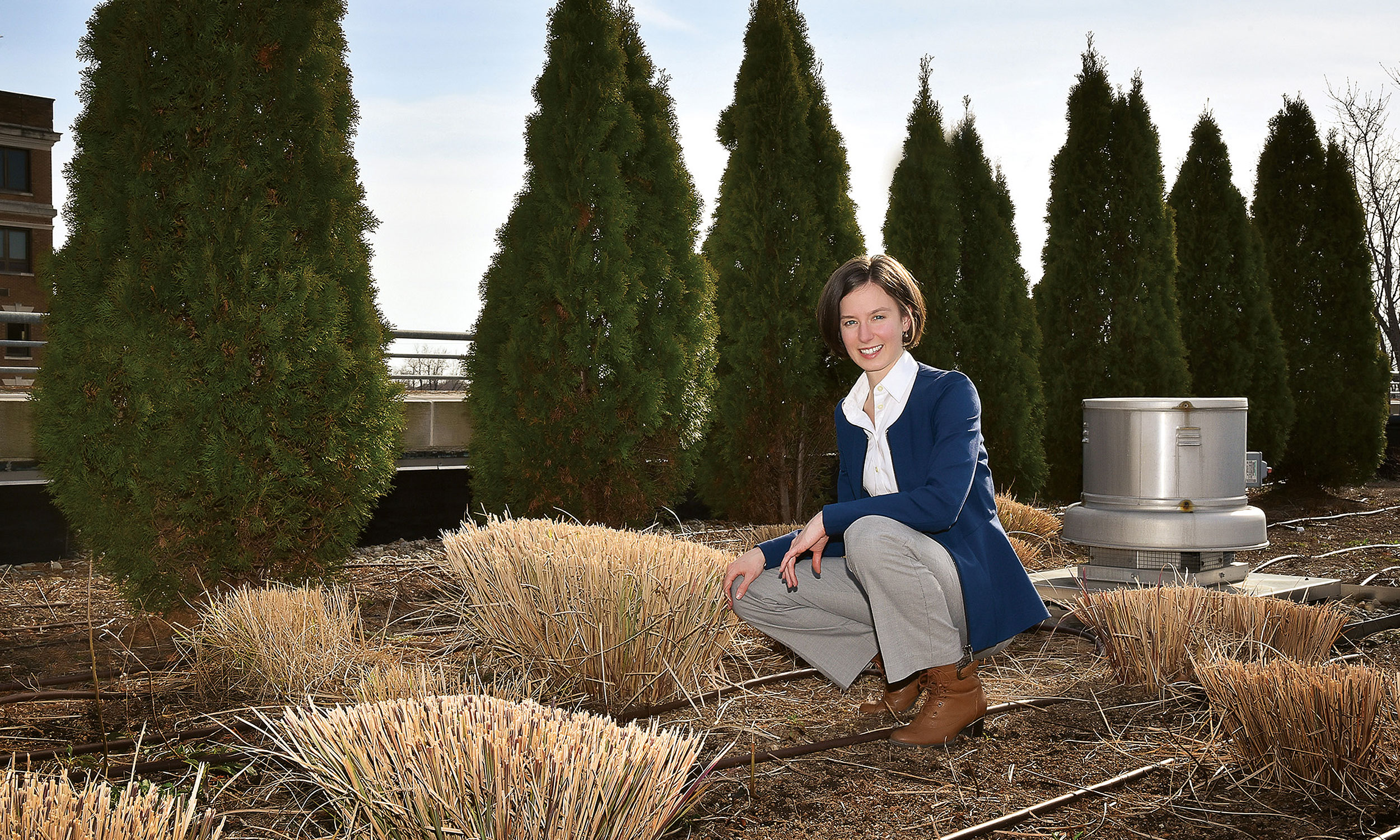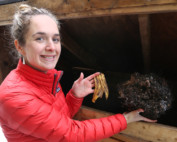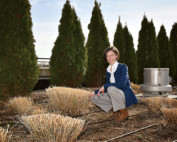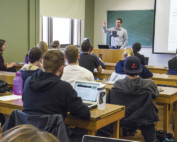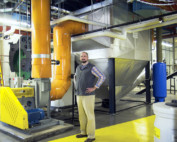WHEN Andrea Webster decided to leave her job with the Association for the Advancement of Sustainability in Higher Education (AASHE) and pursue a graduate degree, her goal was to study sustainability from every angle — political, economic, scientific and social.
Having worked at the high-visibility nonprofit organization whose mission is to “inspire and catalyze higher education to lead the global sustainability transformation,” Webster had a special perspective on which university would be the best place for her to further her education.
She enrolled in a dual program that comprises studying at both ESF and Syracuse University. She earned her M.S. in environmental studies from ESF in 2013, finding time to work in what is now called the Office of Sustainability and play an instrumental role in the College’s successful application to be recognized with a 2014 Second Nature Climate Leadership Award. She also earned a Certificate of Advanced Study in Sustainable Enterprise through SU, then finished up with a master’s degree in public administration from SU’s Maxwell School.
“I knew I wanted to do government or nonprofit work,” Webster said. “Sustainability is not just environmental. It’s all encompassing.”
She found her niche in Louisville, Kentucky, where she works as a sustainability project manager for Louisville Metro Government. She is part of a team responsible for implementing Louisville’s citywide sustainability plan, managing an array of projects.
Much of Webster’s work is tied to Louisville’s efforts to deal with the urban heat island problem that drew national attention to the city.
Research conducted in 2012 showed that Louisville has one of the most rapidly growing heat islands in the country. In addition to causing more energy consumption, heat islands create threats to human health; they make air pollution worse and vulnerable people are especially at risk. As a result of the research, a comprehensive urban heat management study was conducted.
Most urban heat studies look at surface temperatures, but Louisville took a different approach.
“Our study, conducted through a partnership with Georgia Tech, looked at conditions two meters above ground because that’s where humans experience temperature,” Webster said.
To mitigate the effects of urban heat, the study recommends more greenery, the use of cool materials, such as white roofs, and reducing waste heat.
Webster sees progress being made. A comprehensive urban heat mitigation strategy is under development; Louisville was recently accepted into the Rockefeller Foundation’s 100 Resilient Cities program; and Mayor Greg Fischer signed the Compact of Mayors, a worldwide effort to reduce greenhouse gas emissions, track progress and prepare for the effects of climate change.
The challenge requires balancing the realities of economic and political feasibility with actions that are both socially acceptable and environmentally correct.
“There are certain things you can only learn on the job, but I feel my ESF education — all my degrees, actually — prepared me well. I like that it’s a mission-driven job. And it’s a mission I can get behind,” Webster said. “It’s a place where change is needed, and it’s rewarding on a day-to-day basis. The work I do is intellectually stimulating at the same time.”


